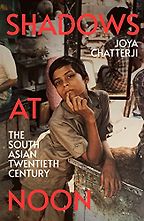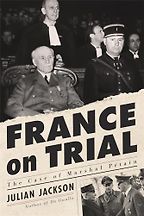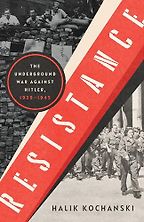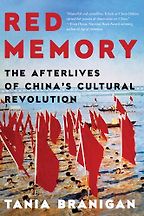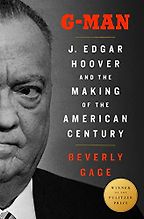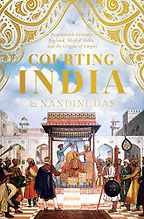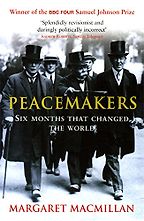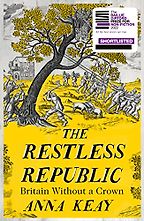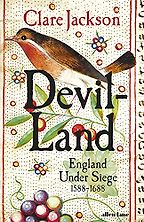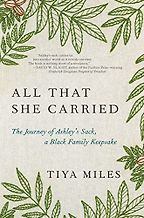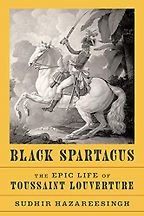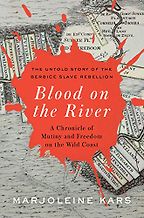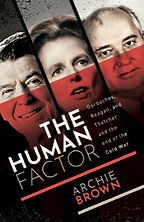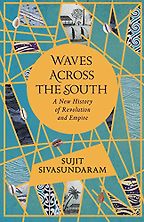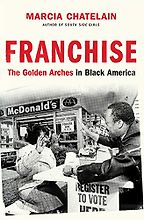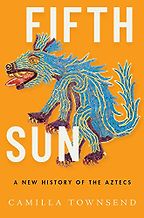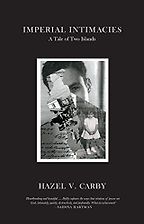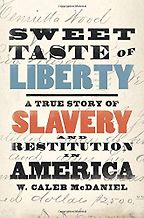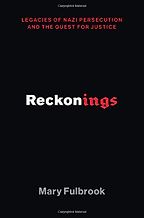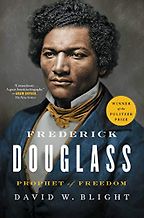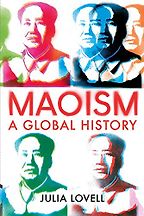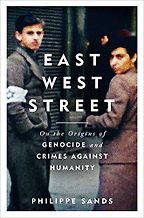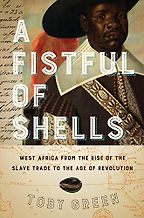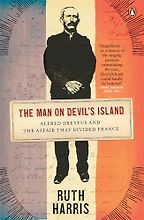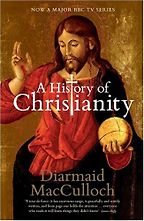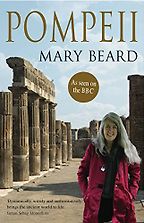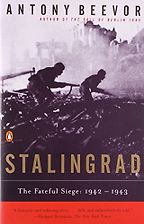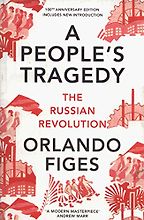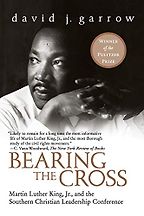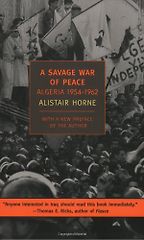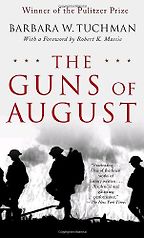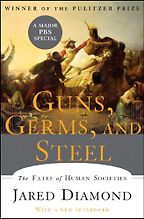Prizewinning History Books
Last updated: September 08, 2025
These prizewinning history books have won their historian authors prestigious awards. Prizes we look at include the Wolfson History Prize, the UK's most prestigious history book prize. This is an award for a book published in English in the UK—but can cover any historical subject. We've also included winners of Canada's Cundill History Prize, awarded by McGill University, which "recognizes and rewards the best history writing in English." This is possibly the most global of the history book prizes, as it is open to any writer anywhere. The prizewinning history book must be in English, but can be a translation from another language.
We also keep track of award-winning books in other fields, including fiction and nonfiction.
Shadows at Noon: The South Asian Twentieth Century
by Joya Chatterji
🏆 Winner of the 2024 Wolfson History Prize
“The book is about India in the 20th century, which means taking it from the late Victorian period, when it had become an empire under Queen Victoria, through to its present form, which consists of three large nations—India, Pakistan and Bangladesh—important on a worldwide scale. That is not an easy task, because the history is crowded with agendas and assumptions. There is the assumption of Britain being a good imperial power or a very bad imperial power. There is the assumption that in 1947 a tragedy happened, Partition. As I read it, I was testing my own assumptions against these inherited ones and found the book extraordinarily fresh. It is written by a citizen of modern-day India, but she has examined her own assumptions, her own experience, and created something which I found surprising and new. There is perhaps an optimistic message behind the book, that despite all the tragedy of the history of the sub-continent in the 20th century, these are three countries which have much more in common than many of their leaders admit.” Read more...
The Best History Books of 2024: The Wolfson History Prize
Diarmaid MacCulloch, Theologians & Historians of Religion
France on Trial: The Case of Marshal Pétain
by Julian Jackson
🏆 Winner of the 2024 Pol Roger Duff Cooper Prize for nonfiction
“Pétain had been the hero of Verdun, a great figure, but he was being tried for treason for signing the armistice with the Nazi regime and being the leader of the Vichy regime in France. He was on trial for his life, accused of collusion with Nazi Germany, and the verdict wasn’t much in doubt. It’s about more than the fate of a particular person—it’s a judgment on these four years of French history. It was newly liberated France’s first opportunity to look back on what it had done and how it had come to this. It’s a terrible account of moral ambivalence, and what you should do when faced with a conquering army. France is asking itself what it could have done, faced with total defeat by Hitler.” Read more...
The Best Nonfiction Books: The 2024 Duff Cooper Prize
Susan Brigden, Historian
Resistance: The Underground War in Europe, 1939-1945
by Halik Kochanski
🏆 Winner of the 2023 Wolfson History Prize
“It’s comprehensive, and that’s very important because a problem with history writing in general, but particularly with resistance, is that it tends to be written from a nation-centric point of view…But this was a pan-European movement and what she does really well is to identify first of all the commonalities. In all of these countries, when you look at underground resistance movements, similar things happened. They had clandestine literature, they collected intelligence, later on they started engaging in sabotage and armed conflict. All of this is happening at different moments and in different ways, but it is happening across Europe. But looking at it across Europe gives you a sense that geography, too, matters. What happens in Eastern Europe is different from Western Europe. That’s the other big takeaway from the book. The Nazis, beyond a certain point in the East, simply regarded these territories as fodder.” Read more...
The Best History Books of 2023: The Wolfson History Prize
Sudhir Hazareesingh, Political Scientist
Red Memory: The Afterlives of China's Cultural Revolution
by Tania Branigan
🏆 Winner of the 2023 Cundill History Prize
If you want to understand China, there is one piece of its history that you must understand, and that's the Cultural Revolution. Nothing about the present makes sense without it. More than 100 million people were affected and yet, unlike Rwanda, South Africa or Germany post-World War II, China has yet to come to terms with what happened during those ten years of chaos.
“What Red Memory does very powerfully, as many specialist works on the Cultural Revolution have done before it, is to show that one of the deeply disturbing things about that decade was that people could begin on one side of the perpetrator-victim divide and end up on the other or flip back and forth between them. It’s a real mistake to try to divide up the people who suffered and the people who caused suffering because it was often members of the same family who were affected in different ways, and there were individuals who were victims and victimizers during different parts of their lives. Efforts to simplify this complicated event creates real problems for understanding China.” Read more...
Jeffrey Wasserstrom, Historian
G-Man: J. Edgar Hoover and the Making of the American Century
by Beverly Gage
🏆 Winner of the 2023 NBCC Biography Award
🏆 Winner of the 2023 Pulitzer Prize for Biography
“Hoover answered to no voters. The quintessential ‘Government Man,’ a counselor and advisor to eight U.S. presidents, of both political parties, he was one of the most powerful, unelected government officials in history. He reigned over the Federal Bureau of Investigations from 1924 to 1972. Hoover began as a young reformer and—as he accrued power—was simultaneously loathed and admired. Through Hoover, Gage skilfully guides readers through the full arc of 20th-century America, and contends: ‘We cannot know our own story without understanding his.'” Read more...
The Best Biographies of 2023: The National Book Critics Circle Shortlist
Elizabeth Taylor, Biographer
“In 1615, Thomas Roe arrived as an ambassador to the Mughal Emperor from the court of King James I of England and VI of Scotland, hung around for three years, and really didn’t achieve anything. He was constantly ill. He misunderstood customs. He bigged himself up in his own mind but, very revealingly, left no trace in the diaries of the Mughal emperor, Jahangir, whom Roe presents as a bosom buddy and hugely impressed by him. Clearly, Jahangir wasn’t. Roe was a bedraggled person from a puzzlingly faraway country with which the emperor had very little dealings and not much interest.” Read more...
The Best History Books of 2024: The Wolfson History Prize
Diarmaid MacCulloch, Theologians & Historians of Religion
Peacemakers: Six Months That Changed the World
by Margaret MacMillan
🏆 Winner of the 2002 Baillie Gifford Prize for Non-Fiction
☆ Shortlisted for the 2023 Winner of Winners Prize, which aims to pick out the best nonfiction book of the past 25 years
“This is the best shortcut to the history of the 20th century. She focuses on the meeting between Lloyd George, Georges Clemenceau and Woodrow Wilson that decided what the new boundaries would be for the world at Versailles in 1919. On one level it is a great human drama, with Italy popping in and out depending on the state of its government, the origins of the conflict between Greece and Turkey and the Iraq war. That is all the fault of a woman who was a bit in love with Lawrence of Arabia and insisted on creating this country, Iraq. Rupert Murdoch’s father makes an appearance and what has happened in Palestine has its roots here too. Everything for right or wrong in the 20th century, the League of Nations and then the UN…all started here.” Read more...
The best books on Power and Ideas
James Purnell, Politician
The Restless Republic: Britain Without a Crown
by Anna Keay
🏆 Winner of the 2023 Pol Roger Duff Cooper prize for nonfiction
“You hear so much about the Civil War and the Restoration, but this republican period has a fascination all of its own and she really brings that out. I thought, ‘Why didn’t I know more about such a pivotal period in English history?’ It also gives you a very rounded view of Oliver Cromwell. He’s a figure whose name we all know, but fewer of us know what he was like or where he came from. I certainly didn’t, so I found that incredibly illuminating. It’s a terrifically researched work of history—erudite, but so brilliantly told. What Anna Keay has done is picked out the lives of fascinating people on different sides of the conflict. It’s easy to go straight to Samuel Pepys to hear about this period, but she’s done something really original.” Read more...
The Best Nonfiction Books: The 2022 Baillie Gifford Prize Shortlist
Caroline Sanderson, Journalist
“It tells the story of a nation in a state of near-continual crisis and it will change our views of the 17th century. It is also extremely well written. It provides fresh insights by looking at England through European eyes.” Read more...
The Best History Books: the 2022 Wolfson Prize Shortlist
Carole Hillenbrand, Theologians & Historians of Religion
All That She Carried: The Journey of Ashley's Sack, a Black Family Keepsake
by Tiya Miles
*** Winner of the 2022 Cundill History Prize***
“This is a work of historical excavation. It concerns a sack that belonged to a girl called Ashley, who, when she was nine years old, was sold away from her mother Rose. Both were enslaved. This was the 1850s, and the sack was later embroidered by Ashley’s granddaughter, Ruth, who worked this incredible inscription that tells us almost everything we know about the story. This book is what we can know about these women, the discoveries made about their identity, and the thousands of others whose stories cannot be told who experienced unimaginable horror. A people’s trauma.” Read more...
Recent Nonfiction Highlights: The 2024 Women’s Prize Shortlist
Suzannah Lipscomb, Historian
Black Spartacus: The Epic Life of Toussaint Louverture
by Sudhir Hazareesingh
🏆 Winner of the 2021 Wolfson History Prize
Black Spartacus tells the extraordinary story of Toussaint Louverture, general and leader of a successful slave revolt in what is now Haiti. He was fighting—at various times—the Spanish, the British and the French. But beyond that, the book goes into detail about his worldview and how he drew on European Enlightenment ideas, but was also strongly influenced by Christianity and beliefs and cultural practices from Africa.
“This book is not hagiography at all. It’s very easy to look for a great liberation hero. But this book shows a deeply flawed man who clearly didn’t make the lives of those who became free, all that much freer. He wanted hard work. There’s a certain ‘Animal Farm-ness’ about the story. And yet, what an achievement it was for this little island to stand up to one of the great powers of 18th century Europe and create the first predominantly Black-run republic in the world. It’s extraordinary.” Read more...
The Best History Books: The 2021 Wolfson Prize Shortlist
Diarmaid MacCulloch, Theologians & Historians of Religion
Blood on the River: A Chronicle of Mutiny and Freedom on the Wild Coast
by Marjoleine Kars
***Winner of the 2021 Cundill History Prize***
This is the story of a massive slave rebellion in 1763 in what is now Guyana, on the northeast coast of South America. At the time, it was a Dutch colony, known as Berbice. Though it took place right at the start of the 'Age of Revolutions' that would transform the world, many of us have never heard of either the colony or the enslaved Berbicians who rebelled against it, described in the book as "among the most oppressed people in the Atlantic world." They nonetheless managed to take over the colony and hold onto it for more than a year. It's an extraordinary story, told in extraordinary detail by Marjoleine Kars, a professor of history at the University of Maryland, thanks to a treasure trove of documents she found in the national archives in the Netherlands.
The Human Factor: Gorbachev, Reagan, and Thatcher, and the End of the Cold War
by Archie Brown
***Winner of the 2021 Pushkin House Book Prize for the best nonfiction writing on Russia***
In the title of this prizewinning 2020 book, Oxford political scientist Archie Brown, a specialist on the Cold War, pays tribute to Gorbachev’s use of the term ‘the human factor’ (or ‘chelovecheskiy faktor’ in Russian) in the developments that led to the end of the conflict. His earlier book devoted to Gorbachev, published in 1996, is The Gorbachev Factor.
Waves Across the South: A New History of Revolution and Empire
by Sujit Sivasundaram
***Winner of the 2021 British Academy Book Prize for Global Cultural Understanding***
“Sujit Sivasundaram starts out by observing that most histories of this period (the 18th-19th century) tend to overlook the experience of a quarter of the world: the Indian oceans and the Pacific. It’s a story of water at least as much as land, and of a characteristically maritime version of imperialism, which is heavily shaped not just by tides, waves and monsoons, but by the fact that reliance on ships gave a basic instability to the imperial process, and also, as we see repeatedly in these pages, a dependence on more or less indigenous knowledge, methods and ingenuity.” Read more...
The 2021 British Academy Book Prize for Global Cultural Understanding
Patrick Wright, Historian
Franchise: The Golden Arches in Black America
by Marcia Chatelain
🏆 Winner of the 2021 Pulitzer Prize for History
“Marcia Chatelain contributes her perspective on how eating establishments have served as a site for black political expression and a business opportunity. One of her incredibly smart observations is that early activists for black civil rights used lunch counters as venues for protest; that’s an important part of our food history…The story of how black entrepreneurs used the predominance of fast food in their communities as an economic development opportunity is brought to light by this book. Chatelain looks at entrepreneurs who take fast food franchises and retrofit them as employment sources and gathering spots for their communities. She talks about how McDonald’s becomes a place, not just of wealth for some black entrepreneurs but also for black Americans to form communal bounds and create political movements.” Read more...
The best books on Food Studies
Matt Garcia, Historian
The Boundless Sea: A Human History of the Oceans
by David Abulafia
***Winner of the 2020 Wolfson History Prize***
The Boundless Sea is a fascinating book which tells the human story through our relation to the oceans—from the early settlement of the Polynesian islands of the Pacific 3,000 years ago to the present day. Extraordinary in its scope and fascinating in its detail, Abulafia ends with a plea for the sea to be protected as a UNESCO World Heritage site. According to Paul Lay, editor of History Today, “David Abulafia is a remarkable historian and this is, I think, his masterpiece."
Editor's note: due to its size, it may be worth getting The Boundless Sea as an ebook, especially if you use an iPad or other tablet, and can still see the book's photos (many of sea-faring vessels) in full-colour.
“It’s sweeping in its coverage across time and space, and he has a magisterial command of the scholarship on the extraordinarily diverse range of regions, periods and events tackled. The sea covers most of the globe, but here we have a history that takes it as a single topic. It’s staggeringly learned but it’s also very readable.What’s impressive about it is that it’s not Eurocentric. It gives equal weight to the whole range of seagoing civilizations. So, for example, famously in the Middle Ages, the Chinese emperor had fleets built that sailed to at least Africa.He tells the fascinating story of these epic voyages, but also cuts it down to size. Legends have inflated the size of these fleets to quite unbelievable levels, and Abulafia takes a more realistic view without in any way diminishing their achievement.Global history has made great strides in the last 15 years or so, and The Boundless Sea is a very good example of how history on a global scale is being written in Britain at the moment.” Read more...
The Best History Books: the 2020 Wolfson Prize shortlist
Richard Evans, Historian
Fifth Sun: A New History of the Aztecs
by Camilla Townsend
***Winner of the 2020 Cundill History Prize***
“It’s a ground-breaking book in many ways. Camilla Townsend has been doing work on this for a while at what you might call a high scholarly level, and this is an attempt to take that learning to a slightly wider audience…She has access to these documents called xiuhpohualli, which she translates as ‘yearly accounts’, but they are the Nahuatl people’s annals and, using these, she concentrates on a period of roughly about a hundred years either side of Hernan Cortes’s arrival. She is very concerned not to portray the Mexica, the Aztecs, as these people who indulge in human sacrifice and all the other things we know from Mel Gibson’s Apocalypto. But it does go on and the human sacrifice actually increases with time.” Read more...
The Best History Books of 2020
Paul Lay, Historian
Imperial Intimacies: A Tale of Two Islands
by Hazel Carby
***Winner of the 2020 British Academy Prize for Global Cultural Understanding***
This is a book by Hazel Carby, who was born in the UK but went on to become a professor at one of the top universities in the US, Yale. This is a very personal book by a serious historian, using her family history to explore Black British history, its relation to the Empire and in turn understand some of the contradictions and tensions within her own family. One take-home of the book: the shocking way people like Carby’s father—who came from Jamaica to fight in World War II—were treated by the British government after the war was over.
“It is a moving as well as interesting book, because it’s a combination of life-writing and historical and political analysis. These two don’t always go together, but this book really manages to combine them effectively. Family histories can be quite soft, but this one revisits a background that was full of stress, disappointment and difficulty as well as dreams and aspirations. Carby’s approach is quite steely in places, but her book is also a story of discovery, which combines judgement with sympathetic testimony as it explores the two large worlds squeezed into her small childhood home in South London. Hazel Carby has, as you say, taught at Yale for many years, but she grew up in the Croydon area and also worked as a schoolteacher in East London.” Read more...
The best books on Global Cultural Understanding: the 2020 Nayef Al-Rodhan Prize
Patrick Wright, Historian
Sweet Taste of Liberty: A True Story of Slavery and Restitution in America
by Caleb McDaniel
🏆 Winner of the 2020 Pulitzer Prize for History
Sweet Taste of Liberty tells the story of Henrietta Wood, an enslaved woman who was granted her liberty in 1848 but was tricked and kidnapped and had to fight for her liberty once again. What's interesting is that Caleb McDaniel, a historian at Rice University, is able to tell her story partly in her own voice, by means of interviews that she gave. After the American Civil War, Wood sued her kidnapper successfully. She received only a fraction of the money she asked for but, according to McDaniel, the award "remains the largest known sum ever granted by a U.S. court in restitution for slavery."
Reckonings: Legacies of Nazi Persecution and the Quest for Justice
by Mary Fulbrook
“***Winner of the 2019 Wolfson History Prize***
“What makes the book distinctive is the second half: the way that she pursues what happened to victims and perpetrators in the years after 1945. She tells different stories: the story of the Federal Republic of Germany, and the story of the DDR, the German Democratic Republic, and the way in which reactions to the Holocaust contrasted in these settings and the reasons for that—the political configurations after 1945 and the Cold War.” Read more...
The Best History Books: the 2019 Wolfson Prize shortlist
Diarmaid MacCulloch, Theologians & Historians of Religion
Frederick Douglass: Prophet of Freedom
by David Blight
🏆 Winner of the 2019 Pulitzer Prize for History
In Frederick Douglass: Prophet of Freedom historian David Blight, Sterling Professor of American History at Yale University, tells the life story of Frederick Douglass (1818-1895). It's an amazing story, from slavery to international celebrity and Blight goes into the many different facets and contradictions of an extraordinary man. If you're not familiar with Frederick Douglass, it's worth starting with one of his own memoirs first, like Narrative of the Life of Frederick Douglass, an American Slave, which is highly readable and available for free as an ebook. Blight's book will then put that story into context and reflect on it with the greater evenhandedness of the historian.
“This is a book by Julia Lovell, who is a brilliant historian of China and has written a number of excellent books. This is not a history of China as such, it’s a look at Maoism as a phenomenon. Maoism has been picked up all kinds of people around the world—by terror groups in South America, by European students and American students in the 1960s…But now Maoism is resurgent because it remains the ideological core of the Chinese Communist Party…This is a hugely significant book and a real eye-opener to anyone—and that’s most of us, let’s face it—who has not really grasped the true nature of China in the 21st century.” Read more...
The Best History Books of 2019
Paul Lay, Historian
East West Street: On the Origins of Genocide and Crimes Against Humanity
by Philippe Sands
🏆 Winner of the 2016 Baillie Gifford Prize for Non-Fiction
“This is a fantastic and very impressive book. He manages to maintain lots of different storylines through quite complex material, in a way that I found completely absorbing. He’s tracing the history of the notion of war crimes and genocide, through two lawyers who were most associated with the Nuremberg trials. They were not related to each other, and didn’t even knew each other very well, but they both came from the same town in Poland that his grandfather also came from…It’s also telling a story of the Holocaust, and how his grandparents managed to escape Vienna quite late and get back to London. There are lots of unanswered questions and loose ends in the story that he gets told by his mother and his grandfather never talked about it. He follows up all of these loose ends, including trying to find the mysterious woman who saved his mother’s life by taking her, as a baby, across Europe, for what turns out to be bizarre motives.” Read more...
Stephanie Flanders, Economist
A Fistful of Shells: West Africa from the Rise of the Slave Trade to the Age of Revolution
by Toby Green
***Winner of the 2019 British Academy Prize for Global Cultural Understanding***
“It’s by Toby Green, who is at King’s College London, and it’s a history of West Africa before its colonisation by Europe—beginning with the Portuguese and going on to the French and the British and the Germans. The author looks at these very advanced, powerful, prosperous kingdoms in West Africa—like Oyo or Benin or Dahomey—and argues that until the rise of the slave trade disturbed the economic equilibrium, they traded on equal terms with the Islamic world to the north.” Read more...
The Best History Books: the 2020 Wolfson Prize shortlist
Richard Evans, Historian
Heretics and Believers: A History of the English Reformation
by Peter Marshall
***Winner of the 2018 Wolfson History Prize***
“The Reformation isn’t just an affair of state. The population of England suffered greatly. He emphasises this point. It was a bloody process. 10,000 men died in 1549. Marshall points out that that was a huge proportion of the English population at the time. He argues convincingly that the Reformation was not just religious—though of course that was the theme that was trumpeted at the time—but it also involved a nation deeply divided and, as a result of different views of religion, radicalised..” Read more...
The Best History Books: the 2018 Wolfson Prize shortlist
Carole Hillenbrand, Theologians & Historians of Religion
“It is a history of the whole of Christianity, but he has a wonderful subtitle: A History of Christianity: The First Three Thousand Years. It takes a little bit of thinking about because you think, ‘Hang on, surely he means two thousand years?’ He doesn’t, of course, because he refers back to the Old Testament, and the history of Christianity before Christ. It’s a hugely ambitious book, but it’s just wonderfully told, and it’s full of such variety and colour, but also a tremendous amount of sympathy. He’s a very erudite, cultured writer, and I enjoyed this book very much.” Read more...
Pompeii: The Life of a Roman Town
by Mary Beard
🏆 Winner of the 2008 Wolfson History Prize
Pompeii is a great book that brings to life day-to-day ancient Roman life as we know it from what’s been uncovered from under the ashes of Mt. Vesuvius. The chapters cover different aspects of life like ‘Earning a Living’ or ‘Who Ran the City?’ There are also interesting photos eg. of a gladiator’s helmet found in the gladiators’ accommodation or a cartoon found on the outside of a tomb of gladiators fighting. The opening, ‘Life Interrupted,’ is unforgettable, tracing the people who fled unsuccessfully from the volcanic eruption. As she writes in the opening lines, ‘In the early hours of 25 August CE, the rain of pumice falling on Pompeii was easing off. It seemed a good moment to leave the city and make a bid for safety.'
“For a good book about the history of Pompeii, there’s Pompeii by Mary Beard, which won the 2008 Wolfson History Prize.” Read more...
Stalingrad
by Antony Beevor
🏆 Winner of the 1999 Wolfson History Prize
🏆 Winner of the 1999 Baillie Gifford Prize for Non-Fiction
“He’s written a lot of good books and he’s rightly considered to be a preeminent historian of World War Two. For me, Stalingrad is by far his best book, and I’ve read nearly all of them. It’s magnificent and gripping. He took a story that hadn’t been told for quite a while and did a lot of important new research. There was that window when you could actually get into the archives, and he was able to get in. He just told a damn good story. It’s a wonderful story anyway, but he told it in a way that—it’s a cliché—but was hard to put down. It’s very easy to put down history books, especially big, long tomes. They’re not usually written for the benefit of the casual reader or to be page-turners. This was just really good storytelling. He followed the rhythms of a great narrative, the way the battle developed, the climax, the way that everything became very brutal and very tense. He did a superb job of tracking that narrative and making it really come to life.” Read more...
The best books on World War II Battles
Alex Kershaw, Historian
A People’s Tragedy: The Russian Revolution
by Orlando Figes
***Winner of the 1997 Wolfson History Prize***
“I think that A People’s Tragedy is the most readable and illuminating history of the Russian revolution to be written, using material that only became available to historians following the Soviet Union’s collapse. Its scope is immense….Figes is basically a social historian. He’s interested in how historical events of the magnitude of the Russian revolution developed out of a number of different social trends. One of the great things about this book is that he combines a number of general theses about the revolution with personal narratives. He chooses five very different characters: Prince Lvov, who was the prime minister in the provisional government that was formed after the February revolution in 1917; General Brusilov, the tsar’s most gifted general who later joined the Red Army; Dmitri Oskin, a peasant soldier; the author Maxim Gorky; and Sergei Semenov, a reforming peasant leader. These personal narratives allow him to look at this period from all points of view – the grand political perspective, the grassroots perspective, a literary perspective, a military perspective.” Read more...
The best books on The Russian Revolution
Roland Chambers, Biographer
Bearing the Cross: Martin Luther King Jr and the Southern Christian Leadership Conference
by David J. Garrow
***Winner of the 1987 Pulitzer Prize in Biography***
“This book is Pulitzer Prize winner. It became a standard narrative of King’s life and the life of the Southern Christian Leadership Conference. It’s an amazing book. David Garrow spent years researching and writing it. It is a long book, but you can still cut it up into chunks so the students can read about the career of Martin Luther King from the Montgomery bus boycott, to Albany, to what happens in St. Augustine in Florida and Birmingham. The entire career of King and the Southern Christian Leadership Conference is in the book, and it gives students a solid grasp of the role of faith; Martin Luther King’s faith, how faith influenced him, how it shaped his activism, and how that activism mobilized communities for campaigns for justice and freedom. It’s an excellent text.” Read more...
The best books on The Civil Rights Era
Lerone Martin, Historian
“I’m very struck now that if you read French historians, or any historians writing about the Algerian War, we are so crippled by a kind of political correctness that we will often start out with huge discussions about vocabulary and whether one can use the word ‘European,’—is that not an essentialized, racialized category. And it’s always quite refreshing to read Alistair Horne who is magisterially politically incorrect.” Read more...
The best books on Modern French History
Richard Vinen, Historian
“We really live in a golden age of narrative history. Because of the popularizing of history, we began to get back to history as storytelling. Many people give Barbara Tuchman credit for being the person that did that. She was not a professional historian. She was incredibly well-educated and well-read and researched everything you could possibly research, but she wrote it as a story. The historian Margaret Macmillan said that reading Tuchman, when she was a graduate student, was like history going from black-and-white to Technicolor. That’s what narrative history does for you.” Read more...
Best Books for History Reading Groups
Donna McBride, Historian
“The book is a masterpiece in terms of integrating a vast range of material from different disciplines, material on language, archaeology, comparative bio-geography, with also lots of his own ethnographic field studies peppered in there…whether you think it is right or wrong, it’s spurred an incredible amount of research. People took it seriously and fully engaged with it. It’s driven economists to get better data to test the theory. So, for example, there’s a number of economic studies now supporting Diamond’s basic thesis. Researchers went and got the date for the earliest beginning of agriculture in different parts of the world, and then used that to predict modern economic development—GDP per capita in the year 2000. You control for a lot of factors statistically, and it is still seems to be the case that what Jared Diamond presented very qualitatively—that the earliness of agriculture really matters—does hold when you do statistical analyses.” Read more...
